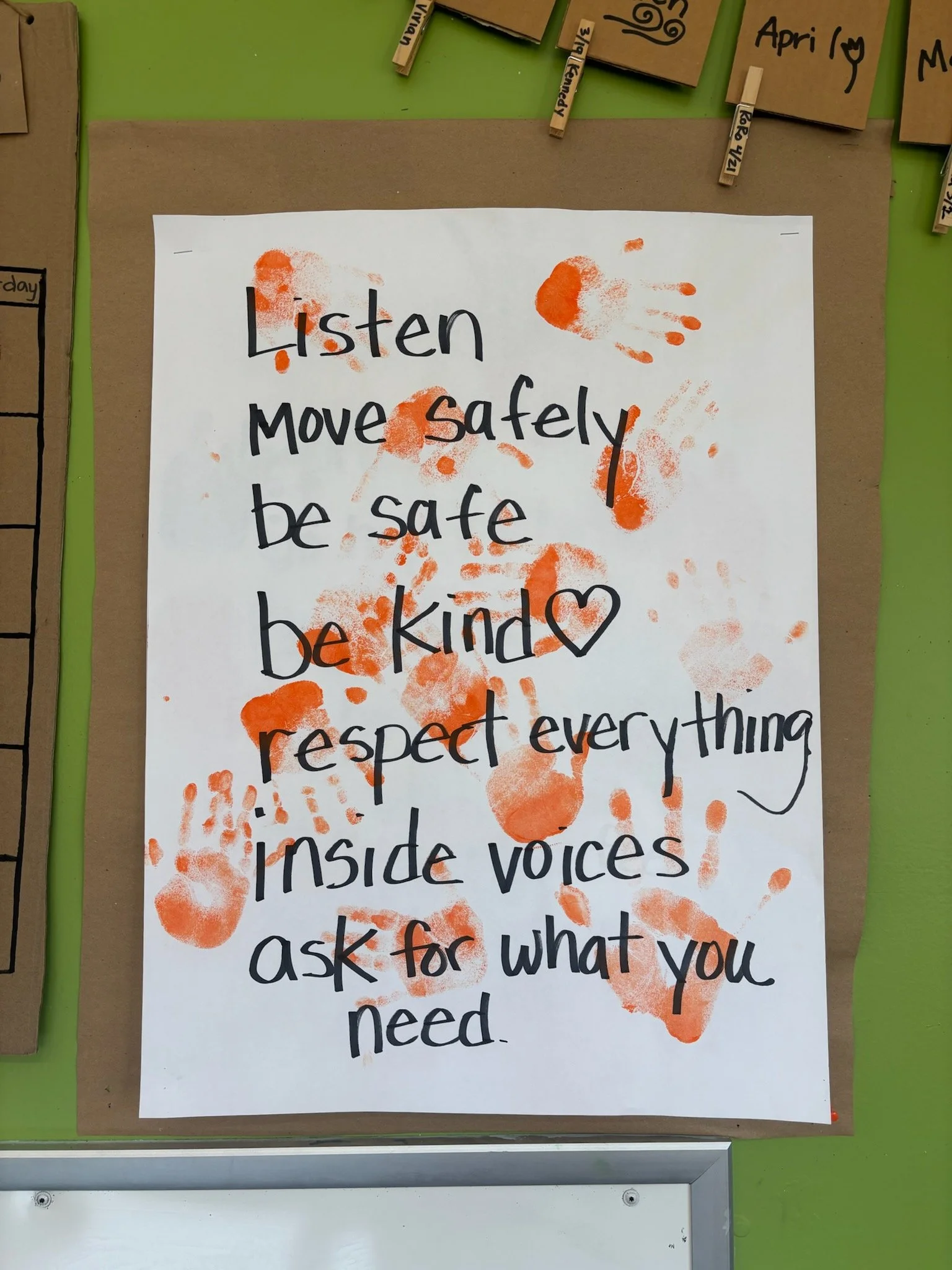Life Lessons from Pre-K: Rules Worth Revisiting
pre-k list of rules
I recently visited a pre-K classroom and found this list of early lessons that carry more wisdom than we give them credit for. The basics we teach 4-year-olds—like kindness, patience, and fairness—are the same principles we struggle with as adults. Somewhere between nap time and the 9-to-5, we’ve forgotten the beauty of these simple lessons.
1. Listen.
In Pre-K, “listen” means stop what you’re doing, turn your body toward the teacher. But there’s a deeper lesson here about presence. Listening is one of the greatest gifts you can give someone. It means letting someone feel heard, valued, and understood.
2. Move safely.
Don’t run with scissors and definitely not in your slippery socks. But in adult life, it’s about being mindful of how your actions affect others, how you show up in relationships. Whether you're navigating traffic, a tough conversation, or a big life decision—move safely.
3. Be safe.
“Be safe” in Pre-K might mean looking both ways or chewing your food thoroughly. But it also means trusting your instincts, setting boundaries, and staying grounded. As adults, safety is about emotional and psychological well-being too. It’s okay to say no. It’s okay to protect your peace.
4. Be kind.
This one is timeless. Preschoolers learn to take turns, and say nice things. Grown-ups? We sometimes forget. But kindness is still the secret sauce of every good relationship. It’s a smile when someone’s struggling. It’s assuming good intentions. Being kind, especially when it’s hard.
5. Respect everything.
In Pre-K, this means putting toys back where they belong, being gentle with books, and treating classmates (and classroom pets) with care. As adults, respecting everything means honoring people’s time, their culture, and their space. Listening to other perspectives, and not taking things—or people—for granted.
6. Use your inside voice.
In preschool, this means no yelling and hush during storytime. But for adults, it’s more about self awareness. Read the room, choose words thoughtfully. And shouting is still bad. You don’t have to shout to be heard. In fact, sometimes the calmest voice in the room is the one people remember.
7. Ask for what you need.
Need help opening your juice box? Need a tissue? Somewhere along the way, many of us forget how to ask—or feel like we’re not allowed to. But needs don’t go away just because we silence them. You’re allowed to ask. For time. For clarity. For help. For space. It’s not selfish—it’s honest.
Turns out, those tiny chairs come with some pretty big wisdom.

